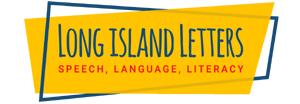PRAGMATIC LANGUAGE THERAPY ACROSS NYC
What Is Pragmatic Language Disorder?
Social pragmatic communication disorder, or pragmatic language disorder, characterizes significant verbal and nonverbal communication difficulties within social contexts. These ongoing challenges in social communication cannot be attributed to low cognitive ability, autism spectrum disorder (ASD), any other medical or neurological condition, or underdeveloped language structure and grammar skills.
Individuals with social pragmatic communication disorder often encounter hurdles in engaging in conversations and utilizing spoken language appropriately in social settings. However, they typically demonstrate average to proficient abilities in the technical aspects of speech, such as pronunciation and constructing sentences. While everyone faces occasional social challenges, for a child grappling with a social pragmatic communication disorder, navigating social scenarios can present a daily struggle.
Speech therapy is one of the most effective treatment approaches for addressing social pragmatic communication disorder—our speech therapists throughout Manhattan, Brooklyn, Queens, Staten Island, and the Bronx.
Signs of Pragmatic Language Disorder
Language pragmatics is the use of appropriate communication methods in social settings. This includes knowing what to say, how, and when.
Here are the signs and symptoms of pragmatic language disorder:
- Difficulty initiating and maintaining conversations
- Challenges in engaging in back-and-forth communication
- Struggles with maintaining appropriate eye contact during interactions
- Difficulty understanding or using non-literal language and humor
- Trouble interpreting subtle social cues or non-verbal communication
- Inability to adjust communication based on social context, leading to inappropriate language use
- Challenges in sharing or seeking information effectively
- Difficulty understanding others’ perspectives and social norms
- Impact on forming and sustaining relationships and navigating social environments.
Difficulties with language pragmatics and social communication can be associated with various conditions beyond social pragmatic communication disorder. Conditions like autism spectrum disorder (ASD), attention-deficit/hyperactivity disorder (ADHD), specific language impairment (SLI), intellectual disabilities, and certain neurological conditions such as traumatic brain injury or neurodevelopmental disorders can also manifest challenges in language pragmatics and social communication.
Additionally, conditions like social anxiety disorder or selective mutism might contribute to difficulties in social communication despite having intact language skills. These diverse conditions can impact how individuals perceive, process, and engage in social interactions, affecting their pragmatic language use and social communication abilities.
Pragmatic Language Disorder Treatment
Behavioral interventions for pragmatic language disorder focus on modifying observable behaviors through strategies rooted in behavioral psychology. These treatments emphasize shaping behaviors through techniques like Applied Behavior Analysis (ABA), employing positive reinforcement, prompting, and breaking skills into smaller steps to encourage desired social behaviors.
On the other hand, social communication treatments center on improving social interaction and communication skills by teaching social nuances, context comprehension, and appropriate communication methods. This approach involves social skills training, role-playing, and explicit teaching of social rules to enhance understanding and application of social cues.
Both treatments aim to improve social communication but differ in their focus, with behavioral interventions emphasizing behavior modification and social communication treatments targeting the development of social interaction skills and comprehension. Often, a combined approach may be used for a comprehensive treatment plan tailored to an individual’s specific needs in managing social communication disorder.
How Does Our Pragmatic Language Therapy Treat Social Pragmatic Language Disorder?
In pragmatic language therapy, we focus on refining social communication skills tailored to your needs. Through a personalized assessment, we identify areas for growth, such as interpreting social cues, engaging in conversations, and using language appropriately in different situations.
Our sessions involve various exercises like role-playing and real-life practice to build and reinforce these skills. We collaborate closely with caregivers and educators to create an environment that supports your progress outside therapy.
Continuous feedback guides our approach, ensuring we’re addressing your challenges effectively and helping you navigate social interactions more confidently and easily. Contact us today for a free consultation and meet-and-greet with our staff. We travel throughout Manhattan, Brooklyn, Queens, Staten Island, and the Bronx.
FREE CONSULTATION!!!
Call: (347) 394-3485,
Text: (917) 426-8880
Email: [email protected]
(we respond to email right away!)


